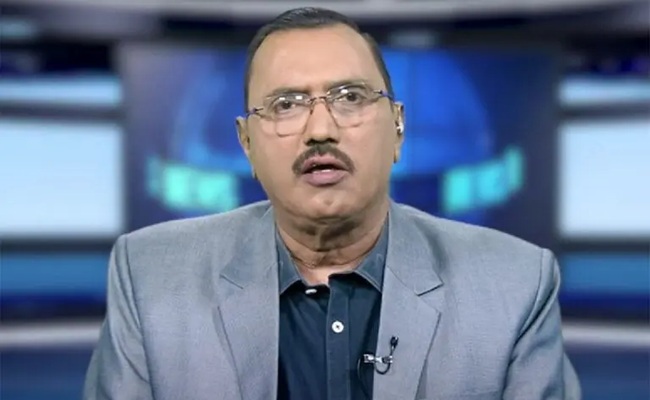
A day after being released from prison — where he was lodged under judicial remand in connection with abusive remarks made by a panellist during a debate he hosted on Sakshi television — senior journalist and popular news anchor Kommineni Srinivasa Rao appeared once again on the channel.
Kommineni turned emotional as he briefly recounted the traumatic experience of being in prison.
With a voice choked with emotion and anguish, he said the arrest had cast a shadow over his integrity, credibility, and the reputation he had built over his 45-year journalism career.
“I was not afraid of the arrest, but what truly pained me were the charges framed against me. At this stage in my life and career, I never expected to face such humiliation and allegations that tarnished my image,” he lamented.
While many sympathized with Kommineni, acknowledging his seniority in the profession, questions remain about whether he truly retained his credibility as an independent journalist — especially since joining Sakshi, a media house owned by YSR Congress Party president Y S Jagan Mohan Reddy.
There’s nothing inherently wrong with working for a media outlet affiliated with a political party. However, a journalist of Kommineni’s stature could have maintained a degree of independence, even while having political preferences.
“There’s a thin line between being a journalist working for a politically-owned media outlet and being seen as a party worker. Kommineni may have crossed that line,” an analyst observed.
Throughout his long career, regardless of personal leanings or affiliations, Kommineni was known for upholding journalistic values and maintaining professional boundaries. His primary concern had always been to be seen as a journalist first.
But what happened this time? During a televised debate he moderated, a panellist — claiming to be a journalist and an open supporter of the YSRCP — made outrageous remarks. Kommineni did not immediately condemn the comments. His only response was, “Be careful, even you’ll be trolled for this.”
While failing to condemn such remarks may not be a criminal offense, the YSRCP’s apparent indifference toward them triggered swift consequences — police cases and arrests unfolded rapidly.
Reports suggest that both the government and the YSRCP spent considerable effort and resources in securing bail for Kommineni, who was eventually released.
YSRCP leader Ambati Rambabu welcomed Kommineni outside the jail with fanfare—garlands, slogans, cheers, and celebrations. But was this truly a victory?
From this point on, Kommineni is likely to be viewed more as a YSRCP loyalist than an independent journalist.
His career in journalism appears to have undergone a transformation. Whether that’s for better or worse is something only he can reflect on.
For now, it seems he may no longer enjoy the professional freedom he once had as a neutral moderator. His identity now, it appears, belongs more to the YSRCP than to journalism.














